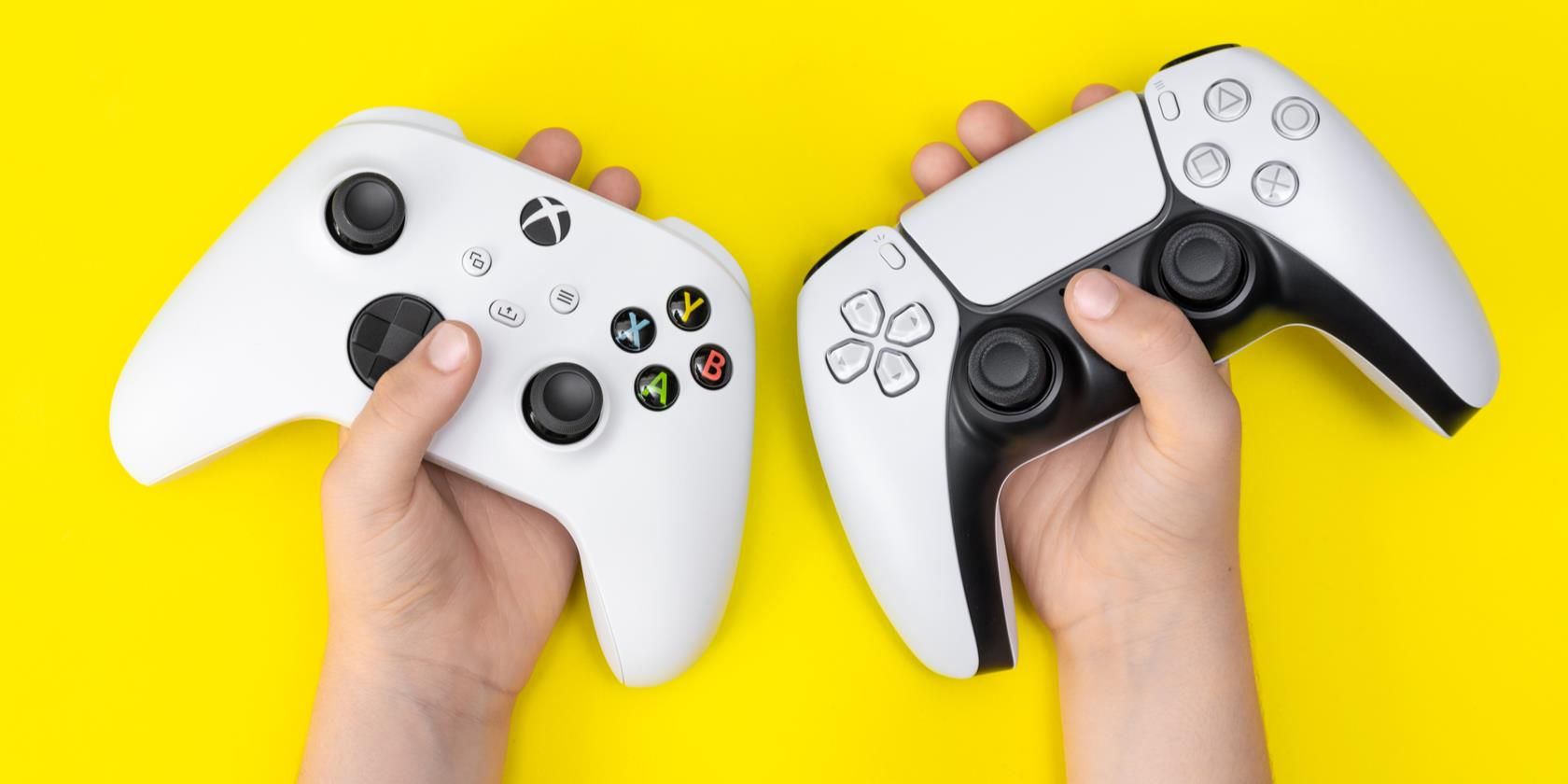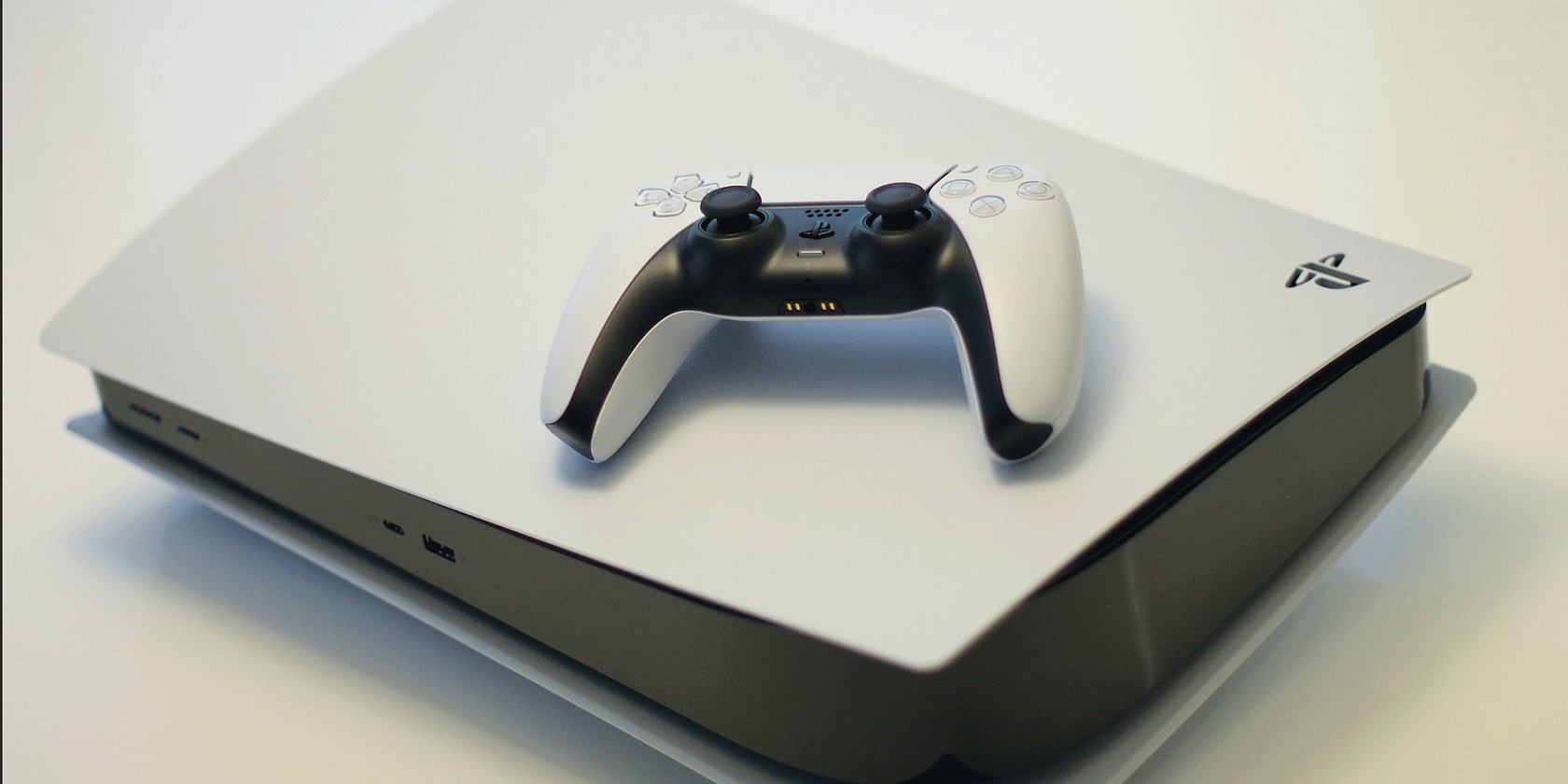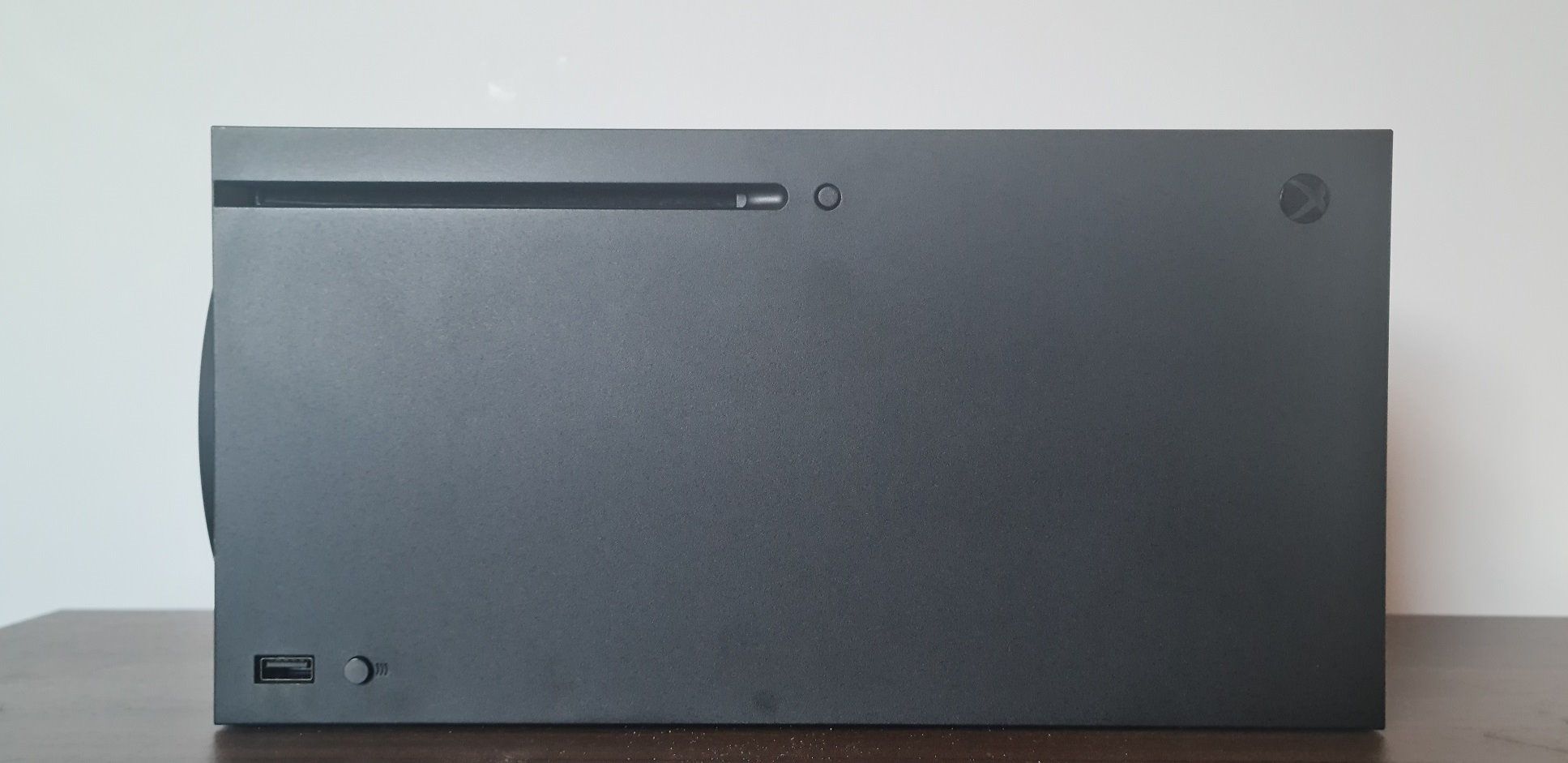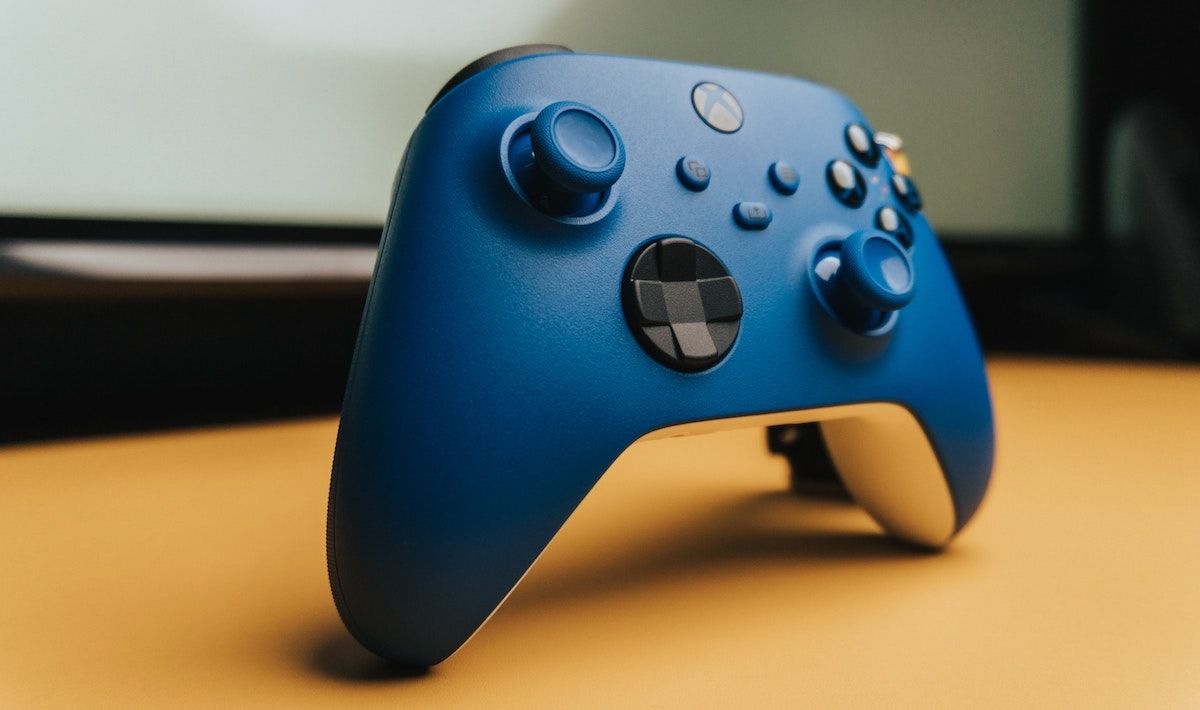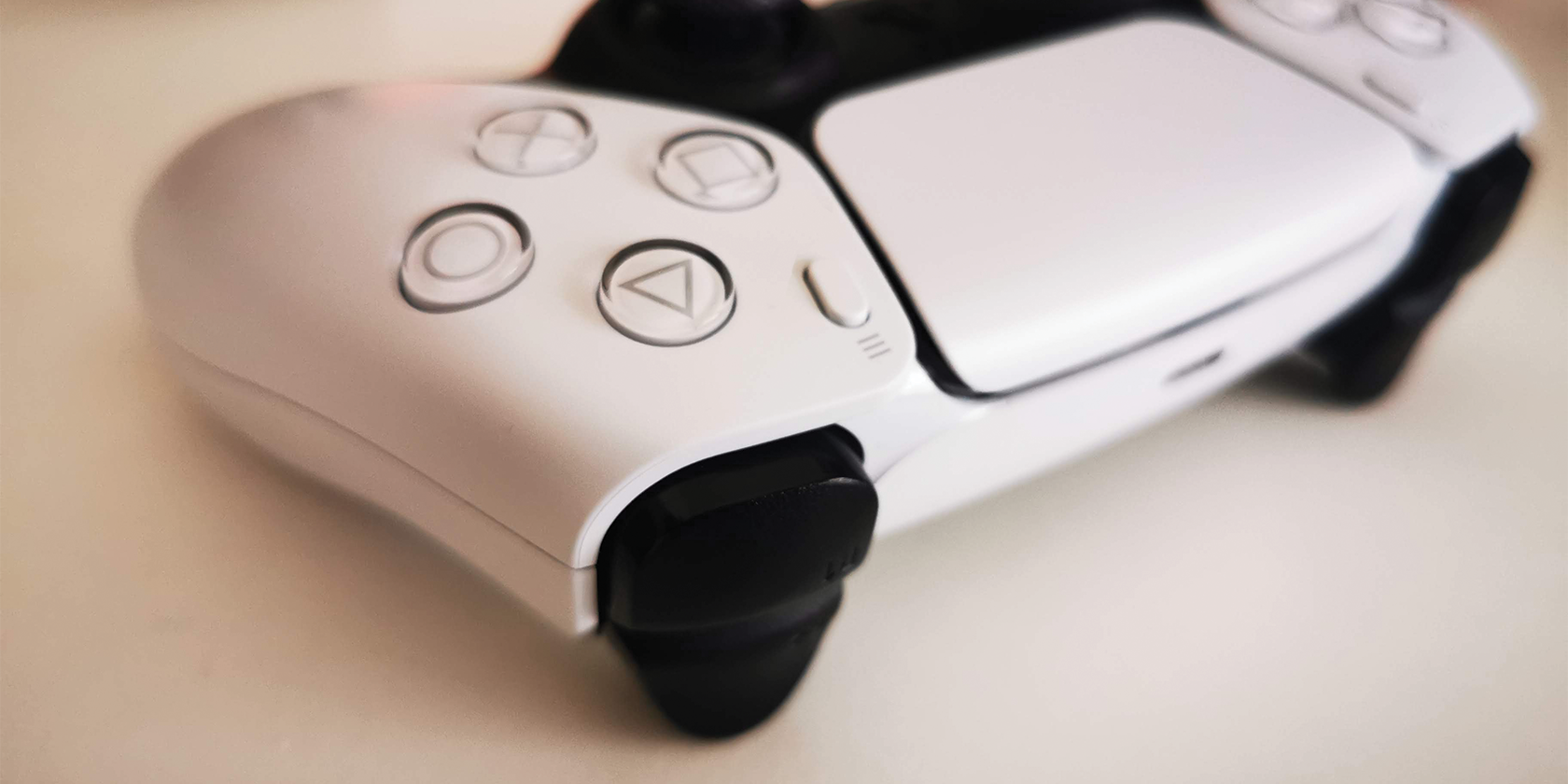The PlayStation 5 and Xbox Series X headline the ninth generation of video game consoles. Both have a lot to offer, but which is right for you?
Let's compare the PS5 and Xbox Series X in several key areas to help you decide which one you should buy.
PS5 vs. Xbox Series X: Pricing
The Xbox Series X and the standard model of the PlayStation 5 both cost $500, though the PlayStation 5 is also available in the Digital Edition for $400. The only difference with the Digital PS5 is that it lacks a disc drive, so you're limited to digital games.
If you want an Xbox but can't pay upfront, Microsoft offers the Xbox All Access program. This allows you to pay $35 per month for an Xbox Series X, plus a subscription to Game Pass Ultimate, over the course of 24 months.
Note that Microsoft also offers the Xbox Series S, a smaller and less powerful console that lacks a disc drive. Since that system is in a different class, we won't consider it here. See our comparison of the Xbox Series X and Series S if you'd like more info on it.
Unfortunately, the Series X and PS5 have both been notoriously difficult to find for years after their release, due to various reasons including supply shortages. Don't pay scalpers for a new console—wait until they are available at their true price.
Winner: Tie. The price is the same and both offer an alternative option for price flexibility.
PS5 vs. Xbox Series X: Specs
Both the PS5 and Xbox Series X are powerful machines. They support 4K gaming and can run games at 60FPS or higher.
The consoles both include an SSD for faster loading than prior generations, but these come in different sizes. The PS5 has a custom 825GB SSD (667GB usable), while the Series X has a 1TB SSD (802GB usable).
On paper, the Xbox Series X is slightly more powerful. However, both systems are about equal in performance. If you're interested in a detailed breakdown, see our comparison of the Xbox Series X and PS5's technical specs.
Winner: Xbox Series X, by a hair.
PS5 vs. Xbox Series X: Design
The PS5 and Series X differ greatly in design. The PS5 is a giant console, standing tall next to any other system. It features a curved design, which might make it difficult to fit into your entertainment center.
The Xbox Series X, on the other hand, has a square length and width, making it feel more like a desktop PC. It's not as large as the PS5, so if you're cramped for space, that console will fit your setup better.
The PS5 has a USB-C port, which the Series X lacks. Otherwise, this part mostly comes down to your preference, as both consoles work in either a vertical or horizontal position.
Winner: Xbox Series X, due to its more compact size.
PS5 vs. Xbox Series X: Controllers
Sony and Microsoft took different approaches with their console controllers this time around. The Xbox Series X controller is nearly identical to the Xbox One's controller. The only differences are a reshaped D-pad, a dedicated Share button, and additional texture for grip.
The Xbox Series X controller still uses AA batteries, which you might see as a pro or a con. You can buy the Xbox Rechargeable Battery kit if you don't want to worry about changing batteries all the time, but this is an additional expense. As a perk, all Xbox One controllers are fully compatible with Xbox Series X (and vice-versa).
On the other hand, the DualSense controller for the PS5 looks fairly different than the PS4's DualShock 4. The adaptive triggers are the biggest standout—the L2 and R2 buttons can dynamically adjust their resistance so you "feel" what you're doing in the game, such as the trigger becoming tighter when driving a car through mud.
The DualSense also includes a mic in the controller, allowing you to communicate without a headset. And haptic feedback allows for more detailed vibrations than older controllers. There's a lot to love about the DualSense, but it's not perfect.
Otherwise, it still has the familiar PS button layout, including the touchpad seen on the DualShock 4. Like that controller, the DualSense is rechargeable. You can use the DualShock 4 on the PS5 when playing PS4 titles, but PS5 games require a DualSense.
Winner: PS5. Worrying about AA batteries is a pain, and the DualSense has a few new exciting features. The Xbox controller is still rock-solid, though.
PS5 vs. Xbox Series X: Games
Of course, no console is worth buying without good games. The PS5 and Xbox Series X have several facets to consider in this sphere, so let's break them down one-by-one.
Exclusive Titles
The PlayStation 5 hasn't received a ton of exclusives in its first few years, as many of its big titles are also available on PS4. Big PS5 exclusives so far include the Demon's Souls remake, Returnal, Ratchet & Clank: Rift Apart, and Final Fantasy VII Remake Intergrade.
Other games are available on both PS4 and PS5, but not on other consoles. These include Spider-Man: Miles Morales, Sackboy: A Big Adventure, Horizon Forbidden West, and God of War Ragnarok.
At the time of writing, the Xbox Series X has few exclusive games. The Medium is a horror game that was console-exclusive to Xbox Series X|S, though is now available on PS5 as well. An announced Fable game and Arkane's latest title, Redfall, will be console-exclusive to Xbox Series X|S, but those aren't available yet.
For now, Microsoft seems to be focusing on releasing games for Xbox One, Xbox Series X|S, and PC. Making these games more widely available is great, but it means there aren't as many reasons to get the newer console.
Winner: PS5, now and into the near future.
Backward Compatibility
The PS5 is backward-compatible with nearly all PS4 titles. If you have the standard PS5, you can simply insert PS4 discs to play those games. On either PS5 model, you can access your entire digital library of PS4 games and download them on your PS5 easily.
However, the Xbox Series X's ability to play older games goes much further. While it's compatible with almost all Xbox One titles, it can also play over 500 Xbox 360 titles and a few dozen original Xbox titles. That means you can enjoy a lot of disc-based games you already own, as well as catch up on Xbox classics from previous generations.
On both systems, older games will run better thanks to the more powerful hardware. The exact features available depend on the game; Microsoft touts FPS Boost to run older titles at smoother frame rates.
Winner: Xbox Series X, due to the sheer volume of older Xbox games you can enjoy on the console.
Game Streaming
Xbox's killer feature is Game Pass, a subscription service that provides unlimited access to hundreds of high-quality games for $10 per month. It's available on Xbox One and Xbox Series X|S, as well as a separate plan for PC. If you want Game Pass on both Xbox and PC, plus Xbox Live Gold, you can pay $15/month for Game Pass Ultimate.
Game Pass is one of the strongest reasons to consider an Xbox Series X, especially with AAA game prices going up to $70 apiece in some cases. Game Pass lets you enjoy big-name games and indie titles alike at an affordable cost, even without waiting for a sale. It's one of the best deals in gaming.
On the PlayStation 5 side, Sony updated its PlayStation Plus service in mid-2022 to offer a similar service. The higher tiers (Extra and Premium) replace the old PlayStation Now streaming plan. However, this has some weaknesses compared to Game Pass; in particular, there's more filler and major PlayStation exclusives don't all appear in the catalog.
Check our comparison of Xbox Game Pass and PlayStation Plus for a full breakdown.
On the PS5, Sony also offers the PlayStation Plus Collection for all tiers of PS Plus subscribers. This grants you access to a set of top PS4 titles to download and enjoy with backward compatibility. It's a great option if you missed out on the PS4, but is only available with an additional $60+/year PS Plus subscription.
Winner: Xbox Series X. Game Pass is hard to beat.
Virtual Reality
If you're into virtual reality, the PlayStation 5 is the console for you. The PlayStation VR (originally made for the PS4) works with PS5, and the PlayStation VR2 is slated for release in 2023.
Microsoft has no plans to introduce VR for Xbox, so don't expect any VR support on Series X now or going forward.
Winner: PS5.
PS5 vs. Xbox Series X: Ecosystems
As we've seen, both the PS5 and Xbox Series X have a lot going for them. However, there's another important element that you have to decide for yourself: which console ecosystem makes more sense for you.
Backward compatibility is a lot more appealing when you already have a library of games to play. But don't forget about other aspects, like moving your saved data, keeping your trophies/Achievements, being able to play with your friends, enjoying your existing subscriptions, the controllers you already have, and similar.
So if you've been an Xbox player for years, even if you're tempted by the PS5, it might make more sense to stay with Xbox. That way, you don't have to start over with all the above aspects, and the true cost of upgrading is lower.
Winner: Tie, as this depends on your situation.
Should You Buy the PS5 or Xbox Series X?
There's no clear answer as to whether the PS5 or Xbox Series X is the better console. Counting each section winner above results in a tie score, and neither console has a strong enough weakness to make it the obviously inferior choice.
As a result, we would recommend the following:
- Buy the PlayStation 5 if: You want to play PS5 exclusives, aren't tempted by Game Pass, don't have a library of older Xbox games, or are interested in VR.
- Buy the Xbox Series X if: You want to use Game Pass, aren't interested in the PS5's exclusives, or are deeply integrated into the Xbox ecosystem.
If you don't think either console is right for you at the moment, don't forget about the excellent Nintendo Switch, either.

